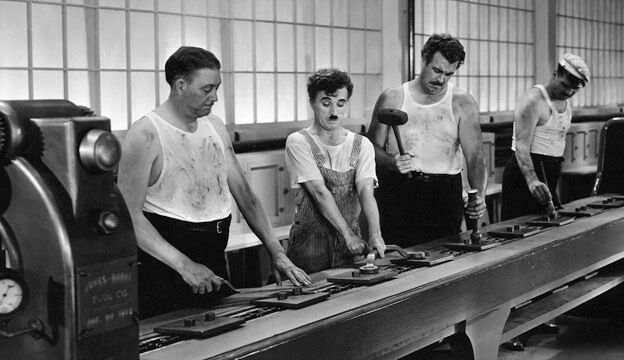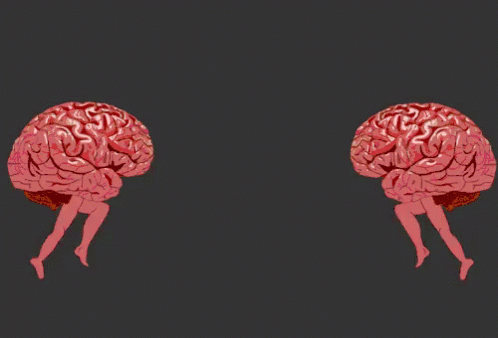Functional Stupidity: The Great Demand in Many Companies

No matter how hard it is for us to say out loud, there is proof: functional stupidity today continues to be the main driving force within many organizations. Creativity is not appreciated, the ability to think critically is nothing but a threat for the businessman who prefers for nothing to change and who is always looking for docile employees.
We are aware that on our blog, we have spoken on more than one occasion about the great human capital that a creative brain can offer to an organization. However, thinking differently, being freer and more connected to our intuition is sometimes more of a problem than an advantage in our working environments.
It is hard to say. We know, however, that every organization is like a unique island with its own dynamics, its policies, and its internal climates. There will be companies that are a perfect example of innovation and efficiency. However, nowadays, the expected change still has not been put into practice. Large corporations and even small businesses are looking for prepared people – there is no doubt about this – but also people who are manageable, well trained, and silent.
Innovation based on that human capital that is born of the open, flexible, and critical mind is a pure risk. This is the case because the management continues to look onto new ideas with fear, because our organizations continue to be based on a strict outline, a vertical schema where the figures of authority exercise total control. Nevertheless, the workers, too, tend to look on that voice bringing new ideas with discomfort and as such, that voice exposes them by showing off abilities that they themselves do not have.
It is a complex reality that we wish to reflect on.

Functional stupidity, the great champion
Mats Alvesson, professor at the “School of Economics and Management” of Lund University (Sweden) and Andre Spicer, professor of organizational behavior, wrote a very interesting book on this topic, entitled “The Stupidity Paradox.” Something we all know is that we live in a time where words like “strategy” or “management” have great importance.
There is a great appreciation for skills based on creativity or on “Mental System Management” (MSM), but going from valuing them to allowing them to be applied is another thing altogether; in fact, it spreads over a vast stretch of discomfort. Because innovation is too expensive, because it will always be better to adapt to what already works instead of risking trying something that is not yet known. All of that feeds into a reality that is as rough as it is limited: an economy based on innovation, creativity, and knowledge is more of a dream than an obvious reality.
There is another aspect that must be taken into consideration, however: A brilliant and well-educated person is also someone who needs a job. In the end, he will give into routine and low prestige jobs because resignation and the assumption of functional stupidity is basic for keeping a job.
It will not matter how well trained they are, their ideas, or their fantastic skills. If you raise your voice, your predators will show up right away: directors and coworkers less brilliant and creative than you, who will ask you to be quiet within that herd of white sheep. Because you are pointing them out, because your ideas could break the “iron assembly line” often based on perpetuating their own mediocrity.

Don’t do it, don’t become functionally stupid
It is possible that our society itself is not ready to receive people who are capable of thought processes that are critical, dynamic, and creative. Nor are companies receptive to that spark based on innovation. Functional stupidity has taken hold because “we have no other option” than to accept whatever, just to arrive at the end of the month.
So then, the functional stupidity that reigns in many of our social structures is inhabited, as we know, by competent and brilliant professionals, but also ones whose jobs are far too easy. We could all give much more if the conditions were favorable.
However, we dissolve completely into that supposed imbecility in order to sustain a system that is being kept, that is surviving, but that is not moving forward. And this is not a good plan. It is not a good plan because in this context, we feel frustrated, and above all else, unhappy.

Problems to reflect on
Mats Alvesson and André Spicer, authors of the aforementioned book, The Stupidity Paradox, point out that there are four aspects that prop up this problem:
- We seek to please whoever has power in the organization.
- We have a need to avoid causing problems and not to tell certain people things that they do not want to hear.
- Very often, being “functionally stupid” leads to things being pretty okay for us: we keep our job and we are accepted.
- The grand majority of jobs today demand these characteristics. If you want to move up and, what’s more, keep your job, it is better to be mindful, serving, and not to question what is taking place.
Many define our current system as an economy based on innovation, creativity, and knowledge. However, we could say, almost without risk of mistake, that only 20% of businesses are putting this into practice. What happens, then, with all those brilliant minds? With so many people willing to give the best of themselves?
Possibilities and changes
We spend a great part of our school and academic life looking for our “element,” which Sir Ken Robinson would describe as that dimension where our natural skills and our personal inclinations come together so that, in the end, we come to the moment where we enter the working world and everything falls apart. Giving up is not good, turning into another cog in that discriminatory motor will not lead to things changing.
Maybe the creative brain must also be trained to be courageous and take initiative. To take on risks and step out of those old-fashioned cycles to found new companies capable of offering innovative services to an ever more demanding society. Great changes do not come overnight, but rather, with the daily whisper, with that slow but constant crunch that always precedes opening up something new and unstoppable.
Main image “Modern Times,” Charles Chaplin (1936)
No matter how hard it is for us to say out loud, there is proof: functional stupidity today continues to be the main driving force within many organizations. Creativity is not appreciated, the ability to think critically is nothing but a threat for the businessman who prefers for nothing to change and who is always looking for docile employees.
We are aware that on our blog, we have spoken on more than one occasion about the great human capital that a creative brain can offer to an organization. However, thinking differently, being freer and more connected to our intuition is sometimes more of a problem than an advantage in our working environments.
It is hard to say. We know, however, that every organization is like a unique island with its own dynamics, its policies, and its internal climates. There will be companies that are a perfect example of innovation and efficiency. However, nowadays, the expected change still has not been put into practice. Large corporations and even small businesses are looking for prepared people – there is no doubt about this – but also people who are manageable, well trained, and silent.
Innovation based on that human capital that is born of the open, flexible, and critical mind is a pure risk. This is the case because the management continues to look onto new ideas with fear, because our organizations continue to be based on a strict outline, a vertical schema where the figures of authority exercise total control. Nevertheless, the workers, too, tend to look on that voice bringing new ideas with discomfort and as such, that voice exposes them by showing off abilities that they themselves do not have.
It is a complex reality that we wish to reflect on.

Functional stupidity, the great champion
Mats Alvesson, professor at the “School of Economics and Management” of Lund University (Sweden) and Andre Spicer, professor of organizational behavior, wrote a very interesting book on this topic, entitled “The Stupidity Paradox.” Something we all know is that we live in a time where words like “strategy” or “management” have great importance.
There is a great appreciation for skills based on creativity or on “Mental System Management” (MSM), but going from valuing them to allowing them to be applied is another thing altogether; in fact, it spreads over a vast stretch of discomfort. Because innovation is too expensive, because it will always be better to adapt to what already works instead of risking trying something that is not yet known. All of that feeds into a reality that is as rough as it is limited: an economy based on innovation, creativity, and knowledge is more of a dream than an obvious reality.
There is another aspect that must be taken into consideration, however: A brilliant and well-educated person is also someone who needs a job. In the end, he will give into routine and low prestige jobs because resignation and the assumption of functional stupidity is basic for keeping a job.
It will not matter how well trained they are, their ideas, or their fantastic skills. If you raise your voice, your predators will show up right away: directors and coworkers less brilliant and creative than you, who will ask you to be quiet within that herd of white sheep. Because you are pointing them out, because your ideas could break the “iron assembly line” often based on perpetuating their own mediocrity.

Don’t do it, don’t become functionally stupid
It is possible that our society itself is not ready to receive people who are capable of thought processes that are critical, dynamic, and creative. Nor are companies receptive to that spark based on innovation. Functional stupidity has taken hold because “we have no other option” than to accept whatever, just to arrive at the end of the month.
So then, the functional stupidity that reigns in many of our social structures is inhabited, as we know, by competent and brilliant professionals, but also ones whose jobs are far too easy. We could all give much more if the conditions were favorable.
However, we dissolve completely into that supposed imbecility in order to sustain a system that is being kept, that is surviving, but that is not moving forward. And this is not a good plan. It is not a good plan because in this context, we feel frustrated, and above all else, unhappy.

Problems to reflect on
Mats Alvesson and André Spicer, authors of the aforementioned book, The Stupidity Paradox, point out that there are four aspects that prop up this problem:
- We seek to please whoever has power in the organization.
- We have a need to avoid causing problems and not to tell certain people things that they do not want to hear.
- Very often, being “functionally stupid” leads to things being pretty okay for us: we keep our job and we are accepted.
- The grand majority of jobs today demand these characteristics. If you want to move up and, what’s more, keep your job, it is better to be mindful, serving, and not to question what is taking place.
Many define our current system as an economy based on innovation, creativity, and knowledge. However, we could say, almost without risk of mistake, that only 20% of businesses are putting this into practice. What happens, then, with all those brilliant minds? With so many people willing to give the best of themselves?
Possibilities and changes
We spend a great part of our school and academic life looking for our “element,” which Sir Ken Robinson would describe as that dimension where our natural skills and our personal inclinations come together so that, in the end, we come to the moment where we enter the working world and everything falls apart. Giving up is not good, turning into another cog in that discriminatory motor will not lead to things changing.
Maybe the creative brain must also be trained to be courageous and take initiative. To take on risks and step out of those old-fashioned cycles to found new companies capable of offering innovative services to an ever more demanding society. Great changes do not come overnight, but rather, with the daily whisper, with that slow but constant crunch that always precedes opening up something new and unstoppable.
Main image “Modern Times,” Charles Chaplin (1936)
This text is provided for informational purposes only and does not replace consultation with a professional. If in doubt, consult your specialist.







